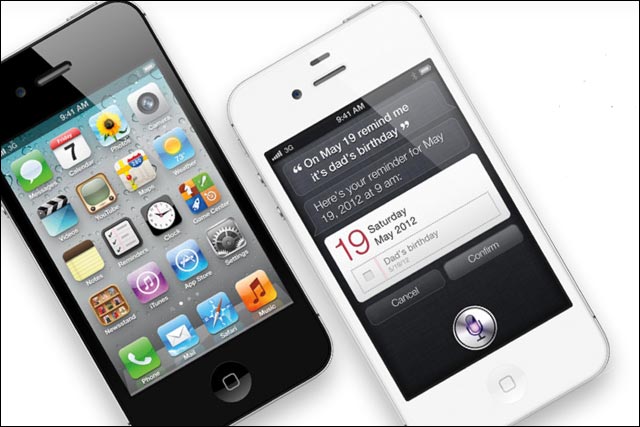
Tim Cook, Apple chief executive, oversaw the launch of the iPhone 4S at the company's headquarters in Cupertino, California, yesterday (4 October).
The updated model will be able to operate off the latest variant of Apple’s bespoke operating system, called iOS 5, which is compatible with the iPod touch, iPad and Apple TV.
Consumers will be able to access the upcoming iCloud system with the launch of the new operating system, which will enable the access of purchased music without syncing with a PC or Mac.
Apple will also introduce a system called Siri to the updated phone, which will allow users to speak into the device to do tasks from finding restaurants, to setting reminders.
The voice-activated software is also designed to be more conversational and understand questions such as: "Do I need a raincoat today?".
It is understood the iPhone 4S will launch in the UK on 14 October.
This is the first product announcement made by former chief operating officer Cook, who took over the helm from Steve Jobs after the latter stepped down due to health problems.
The usual rumours have surrounded the unveiling of the updated iPhone because of the secretive way the tech brand handles the announcement of new products.
Rumours abounded that Apple would launch two new models, an iPhone 4S and iPhone 5, after comments made at the Discovery Invest Leadership Summit in South Africa by former US vice-president Al Gore, who is a member of Apple’s board of directors.
Hype surrounding a potential iPhone 5 launch has left industry experts including mobile marketing company BlisMobile's chief executive Greg Isbister feeling "a bit underwhelmed".
Isbister believes that even though the updated handset will improve internal features it will not significantly dent Android’s market share because it has not got enough "hype and excitement - it looks identical, which doesn’t get people as excited."
Apple products have received long-standing criticism for their "walled-garden" business model, but such criticism has not prevented the company's devices dominating the smartphone and tablet computer market.
The "walled-garden" criticisms have come about due to Apple refusing to allow Adobe’s Flash software on its products and forcing app developers and media owners to hand over a substantial cut of sales revenue generated via Apple platforms.
Ross Sleight, chief strategy officer at mobile marketing agency Somo, believes these criticisms can be overblown.
Sleight said: "The question I always ask is does it benefit the consumer? Ultimately it benefits consumers, yes you are tied into Apple and yes you do have to bow down to Apple’s laws, but if you are willing to make that trade off then there is no argument to why it shouldn’t be a walled garden."
"People who complain about walled gardens are usually the ones not let into it."
Sleight believes the implications of the iPhone 4S launch are massive because it has allowed Apple to start offering its iPhone 3GS phone for free on contract.
He said: "That’s a big move because up to this point Android has been stealing market share across US and Western Europe.
"There was always a barrier to you buying an Apple over an Android and that’s why Android has grown in the marketplace – it took my breath away because it’s a very aggressive move."
Amazon is hoping to benefit from growing resentment of Apple’s power by as a loss leader in order to lure content makers to its device, at the expense of the iPad.
Publishers including Hearst, Condé Nast and Meredith have already signed up to the Kindle Fire, according to reports.
It is believed Amazon is appealing to media owners by undercutting the 30% commission Apple charges for content sold on its devices.
Apple claims there are more than 500,000 apps in its App Store and says it has paid developers more than $3bn, although it is not clear whether this was before or after it took its cut.
Follow Matthew Chapman on Twitter


.jpg)


.jpg)